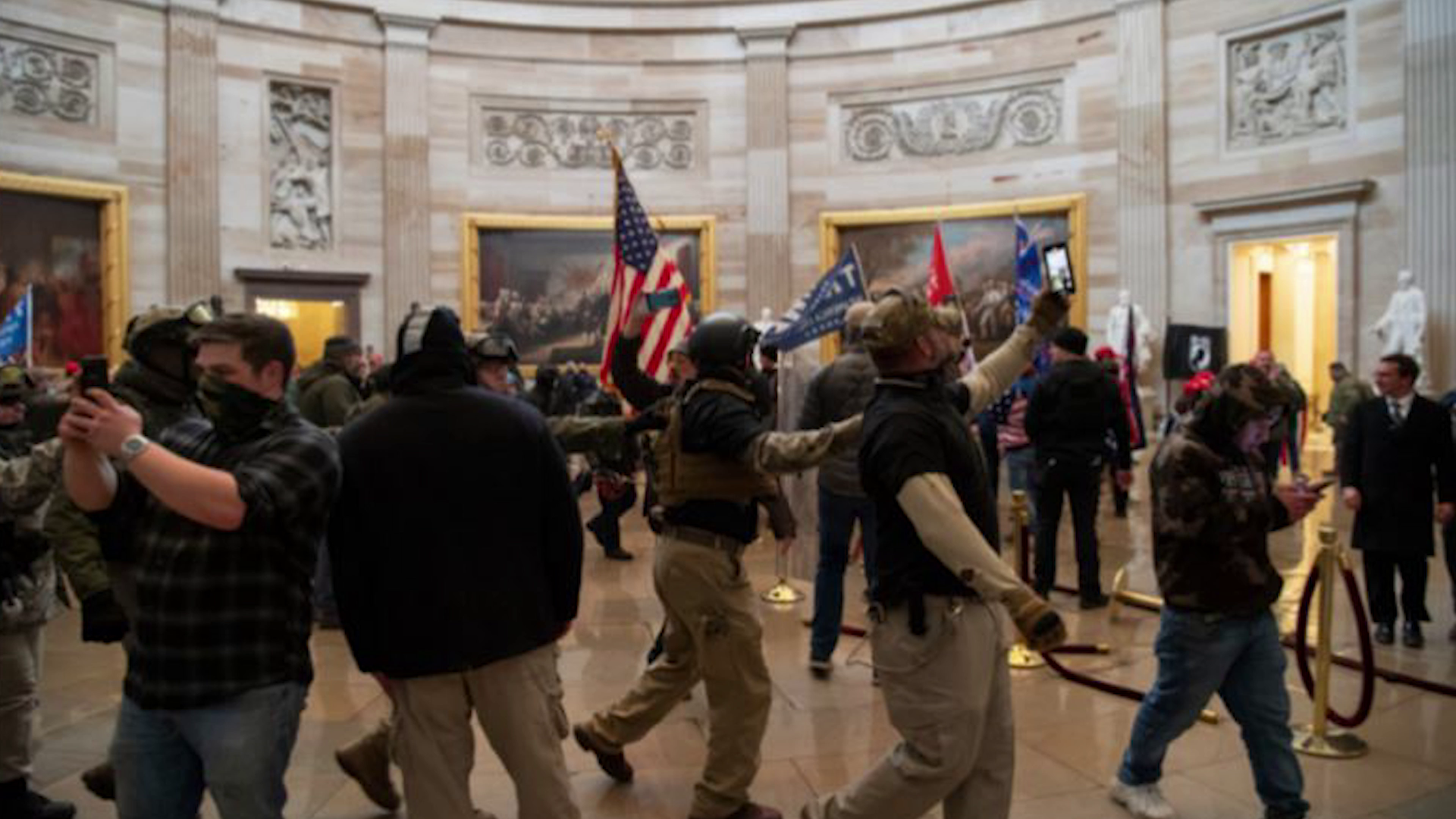WASHINGTON — Before his bond hearing began Tuesday, a federal judge warned Brandon Fellows he could be opening himself up to perjury – or even obstruction of justice – charges if he testified on his own behalf, and that he would likely be going back to jail, regardless. Two hours later, the judge’s warning turned out to be prescient.
“Most people do not do this,” U.S. District Judge Trevor McFadden told Fellows. “Obviously your attorney has discouraged this. I do not think this is a good idea… but I’m going to allow you to take the stand, if you wish.”
Fellows is an Albany, New York, resident under indictment on a felony charge of obstruction of an official proceeding in connection with the Jan. 6 Capitol riot. In charging documents, prosecutors say Fellows entered the Capitol through a broken window and wound up smoking marijuana in Sen. Jeff Merkley’s (D-OR) office.
Fellows was initially granted pretrial release, but was ordered back into custody in June after repeated violations, including missing a court-ordered mental health evaluation and allegedly calling a probation officer’s mother. The Justice Department also said when a clerk of the court attempted to contact Fellows about another violation – allegations that he was harassing a former girlfriend – it was discovered he had apparently put the number for the judge’s wife’s office instead of his own.
Last month, Fellows asked McFadden to allow him to represent himself pro se in his case – saying he had spent the previous two weeks in the D.C. Jail’s law library and determined that was what he wanted. Despite warning him, repeatedly, of the possible consequences of going it alone with no formal law training, McFadden ultimately granted Fellows’ request.
On Tuesday, Fellows appeared before the judge for his first full hearing as his own counsel to argue his bond status should be reconsidered. When McFadden denied his request to call his former public defender, Cara Halverson, as a witness, Fellows instead described a conversation he said he recorded with her about a “loophole” he’d found that could get McFadden removed from the case.
Fellows said he asked Halverson if he should contact McFadden’s family as a means of disqualifying him from presiding over his case. He also said he had told Halverson – to her horror – about a previous occasion in which he’d intentionally put the phone number of another judge’s wife as his emergency contact in order to get a new judge. In that case, the judge was replaced with another.
Fellows said Halverson told him that was illegal, and if that he tried to do that with McFadden he would wind up in jail on even more serious charges.
“When I’m worried, I don’t make the most understandable decisions,” Fellows told McFadden later in explanation.
Over the course of the nearly 2-hour hearing, Fellows rambled across a difficult-to-follow litany of complaints about his incarceration, stopping to touch on subjects as widely varied as the Taliban, Guantanamo Bay, a woman who’d left her child in a dumpster and a “constitutional lawyer” who had allegedly advised him to wrap his cell phone in tin foil to avoid capture.
In her much shorter cross-examination, Assistant U.S. Attorney Mona Furst got Fellows to admit – under oath – that he had climbed into the Capitol through a broken window without police permission, that he had used the previous judge’s wife’s contact information to try to get him removed from the case and that he had missed court-ordered mental health and drug testing appointments.
McFadden, having listened to him talk for nearly two hours, then brought Fellows back down to Earth.
“You are charged with a federal felony,” McFadden said. “This is not a community college where you get pats on the back.”
“You’ve admitted to incredible lapses of judgment here on the stand, not least of which was seeking to disqualify a New York state judge,” the judge continued. “You’ve admitted to obstruction of justice in that case, and you’ve admitted to what was probably obstruction in this case in trying to have me disqualified, and only Ms. Halverson’s advice stopped you from doing so. You’ve engaged in a pattern of behaviors that shows contempt for the criminal justice system, and I just have no confidence that you will follow my orders if I release you.”
McFadden then denied Fellows’ request to reopen his detention status and ordered him back into the custody of the D.C. Jail.

